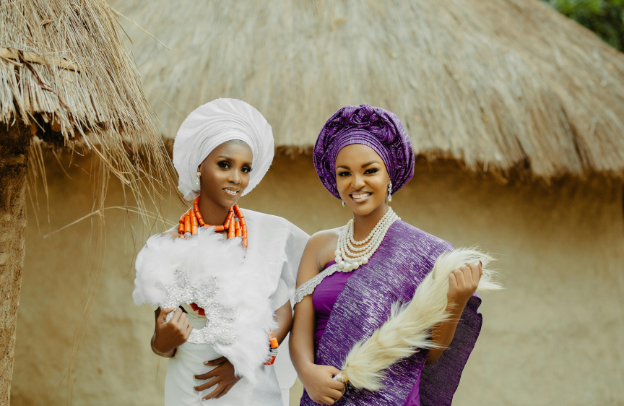How Group Tourism Facilitates Ongoing Collaboration and Growth within Diaspora Communities

Can group travel facilitates true collaboration and growth within diaspora communities? The answer is yes. Group travel is more than a shared travel experience—it is a catalyst for ongoing connection, collaboration, and community-building within diaspora populations.
Learn How to Leverage Your Story through our Story To Asset Framework.
As individuals come together to explore their cultural roots or reconnect with their heritage, these journeys often spark meaningful relationships and networks that extend far beyond the trip itself.
Through shared experiences, diaspora members find common ground, exchange ideas, and develop a renewed sense of purpose that often translates into collaborative initiatives in business, education, and cultural preservation.
Group travel thus becomes a powerful platform for sustained engagement and growth, reinforcing identity while building bridges across borders and generations.
This evolving dynamic has emerged in response to a growing desire for diasporans to shift from consumers of culture to co-creators of future narratives. More than a personal journey, the modern diaspora group tour is a catalyst, fueling entrepreneurial ventures, educational exchanges, and cultural preservation.
The notion of temporary tourists is being replaced by long-term partners, driven by a shared commitment to African development and unity.
A rising example is the “Year of Return” campaign launched by Ghana in 2019. Designed to mark 400 years since the first enslaved Africans arrived in Jamestown, Virginia, the campaign attracted hundreds of thousands of visitors and generated over $1.9 billion in travel revenue. More importantly, it inspired a groundswell of business investments and diaspora relocation.
According to Quartz Africa, the campaign was a resounding success, not only economically but also in fostering long-term engagements between Ghanaians and the diaspora.
One of the defining features of group travel as a tool for collaboration is its emphasis on shared experience. Unlike individual travel, group tours create a sense of collective discovery.
Participants in group travel often hail from a wide range of professions—educators, tech entrepreneurs, farmers, artists—and yet, through carefully curated experiences, they find common ground. These journeys are designed not just for sightseeing, but for connection, fostering trust and the open exchange of ideas.
The communal nature of travel creates a unique environment where group dialogue, peer mentorship, and spontaneous brainstorming naturally evolve into collaborative initiatives. What begins as a shared cultural experience often transforms into a powerful network of changemakers with a shared vision for impact.
Organizations like the African Diaspora Network have recognized the potential of these gatherings, launching programs such as Builders of Africa’s Future to link diasporan innovators with entrepreneurs on the continent.
Similarly, travel agencies and cultural institutions are reimagining itineraries to include business forums, startup site visits, and meetings with local leaders, turning travel into a platform for strategic collaboration. Initiatives like the Back2Africa tours, led by groups such as Travel Noire, blend cultural immersion with opportunities for investment and service.
See also Visa Requirements Tips For International Traveling
Many participants have returned home to launch nonprofits, invest in community ventures, or even establish schools. In this evolving model, travel becomes more than leisure—it becomes a conduit for diaspora-led development, innovation, and lasting change.
Programs like the Sankofa Journey offer curated, spiritually rooted trips to heritage sites that emphasize reconnection, healing, and mutual understanding. These emotional experiences often inspire participants to remain engaged, channeling their reconnection into long-term collaborations and support for local initiatives.
Collaboration also extends into education and youth development. University-led group tours; such as those by Howard University, Morehouse College, and the University of the West Indies, are not only academic explorations but also seeds for institutional partnerships.
These trips have led to student exchanges, co-authored research, and joint degree programs with African universities. According to The Africa-America Institute, such collaborations are vital to strengthening transatlantic intellectual and cultural ties.
Social media and digital storytelling further amplify the effects of these tours. Diasporans document their journeys online, creating a ripple effect that inspires others to follow suit. Influencers and content creators often return with narratives that challenge stereotypes and elevate African stories of innovation, resilience, and creativity.
This digital feedback loop not only builds awareness but also attracts attention to local businesses, NGOs, and artists, fueling a cycle of support and economic opportunity.
The model is not without challenges. Critics warn of the risk of neo-colonial attitudes, where diaspora travelers assume savior roles rather than approach partnerships with humility. Some local stakeholders have raised concerns about uneven power dynamics, especially when tourists come with wealth and influence.
For group travel to serve as a true bridge between diaspora communities and their countries of origin, it must be built on a foundation of mutual respect, cultural sensitivity, and shared decision-making.
Initiatives like those led by the Pan-African Council champion ethical engagement frameworks that prioritize community-led participation, ensuring that diaspora-driven projects reflect the voices and needs of local populations. Rather than imposing ideas from afar, this approach fosters genuine partnerships where both sides contribute knowledge, resources, and vision.
The benefits of such collaborative travel models continue to grow—especially in terms of economic impact. According to a 2023 report by the World Travel & Tourism Council, cultural travel contributes over $30 billion annually to Africa’s GDP. When diaspora groups travel with an eye toward investment, cultural exchange, and long-term collaboration, that impact is not only magnified but also diversified.
See also Group Travel – A Shared Adventure in Verona: My Verona Journey Series, Part 8
In countries like Senegal, Nigeria, and Ethiopia, group tours have sparked diaspora involvement in sectors such as agribusiness, eco-travel, and the creative industries. A notable example is a 2022 AfrikCan-organized tour that resulted in the founding of a women-led textile cooperative in Dakar, now supplying fabrics to boutiques in Brooklyn and Paris.
Governments are increasingly recognizing this potential. Rwanda’s “Come See, Go Tell” initiative invites young diasporans to witness the country’s development and return as storytellers and collaborators, while the African Union’s Diaspora Division positions travel as a key tool for mobilizing diaspora resources for sustainable growth.
At the heart of these developments is a renewed understanding of the African diaspora as a dynamic, diverse, and valuable extension of the continent. Group travel offers a living space for this identity to grow.
It turns the journey home into a forward-looking dialogue, where histories are reclaimed and futures are jointly imagined. For every plane ticket booked, there is potential for a business venture launched, a cultural bridge built, or a school funded.
As African nations continue to prioritize regional integration and diaspora engagement, group travel stands as one of the most effective tools for grassroots diplomacy. It is experiential, relational, and catalytic.
From cultural exchanges and entrepreneurship to education and the arts, group travel has evolved into a mosaic of possibilities. The traveler becomes a partner, the tourist a contributor, and the journey a launchpad for legacy.
In an age where global African solidarity is no longer optional but essential, these collective tours are not just about discovering Africa, they are about co-creating its future.
Learn How to Leverage Your Story through our Story To Asset Framework.





